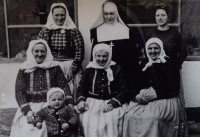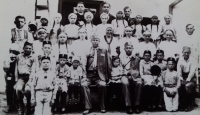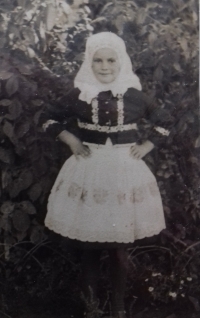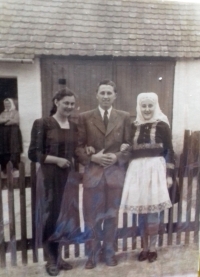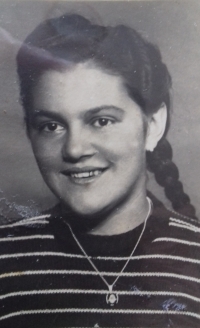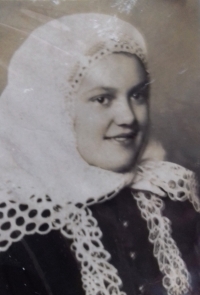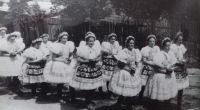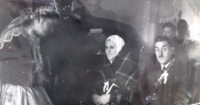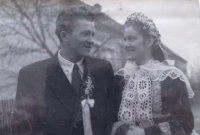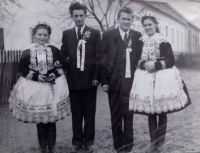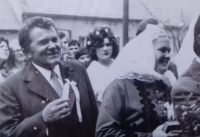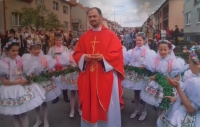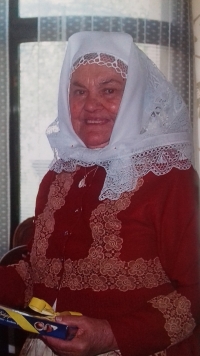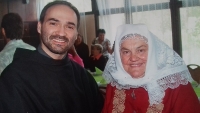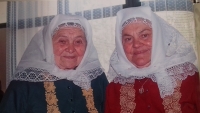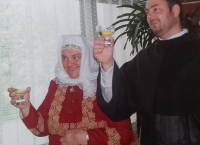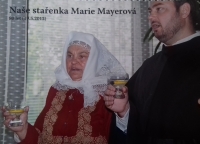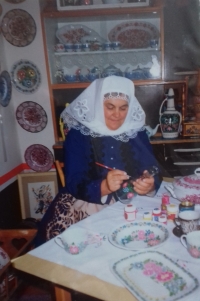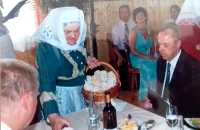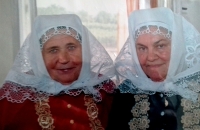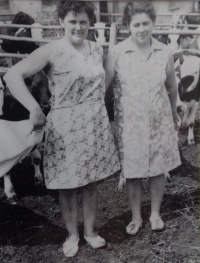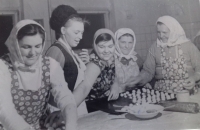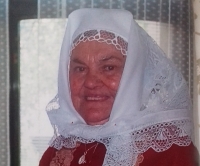I was very lucky
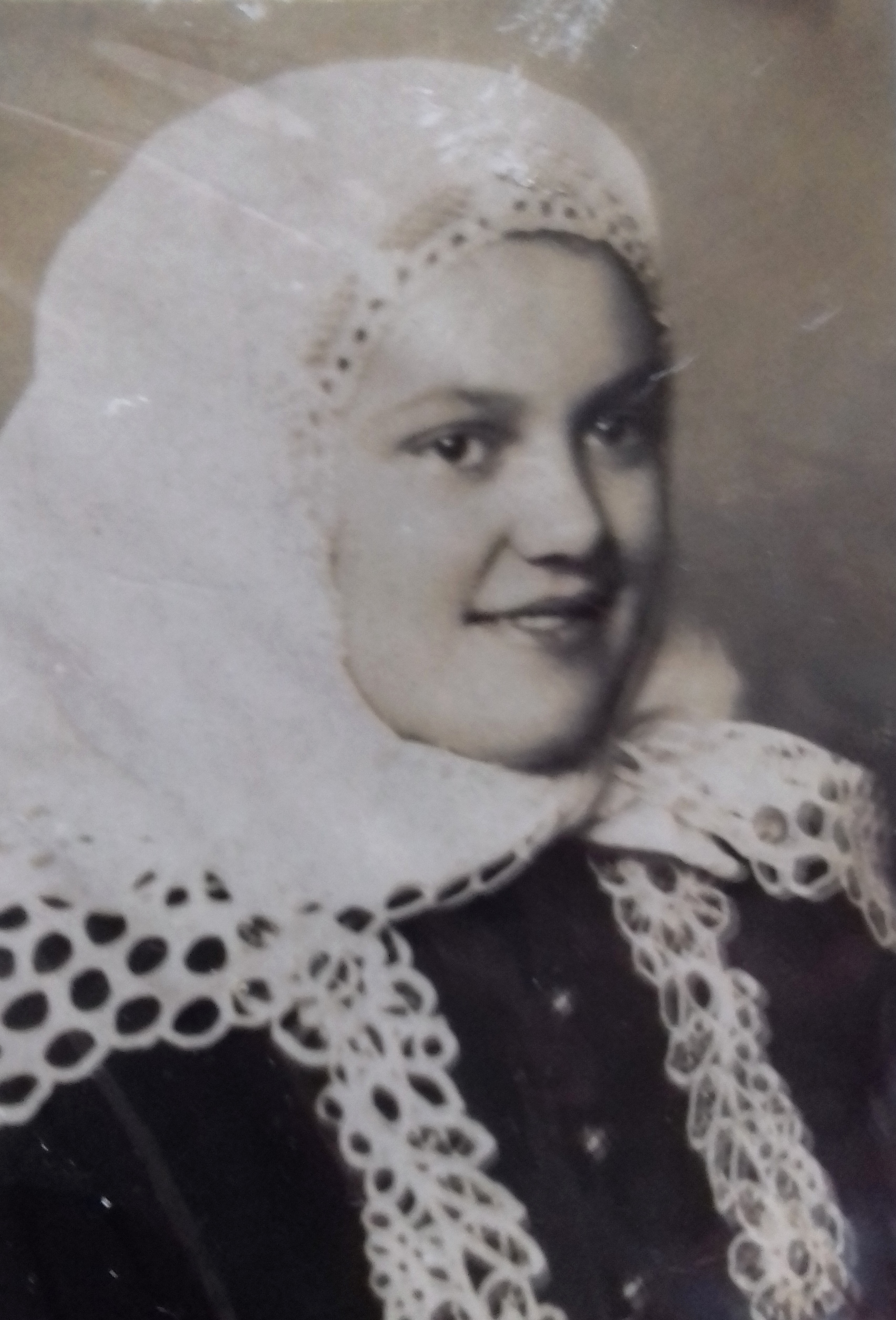
Download image
Marie Mayerová was born on April 3rd 1932 in Terezín in the Hodonín region. During the war, the family rented a part of their house to a married couple from Hodonín. Their large dog bit Marie’s face, and it took two days to give her a proper medical treatment. There was already a waiting list for the whole region, due to doctor shortages. In 1946, Marie underwent plastic surgery in Prague led by Prof. František Burian. In 1951 she married František Mayer and together they raised three sons. Shortly after getting married, she began working in the JZD (Unified Agricultural Cooperative) focused on livestock production. From 1960 she was a member of the council for the Czechoslovak People’s Party, she was also elected to the cooperative’s board of directors and a chairwoman of the social committee. She initiated meetings with pensioners. In 1971, her son Mirek died tragically. Marie started to paint ceramics. In 2002, her grandson Robert joined the Minorites and Marie supported her grandson in his studies, grew vegetables for the monastery and helped organize the so-called First Mass, Robert’s first Mass in Čejč. In February 2016, Robert tragically died. In the same year, a book called Děcka, valíme do nebe, roughly translated as Kids we’re Going to Heaven, was published. Marie significantly contributed to this book with her memories and insights from her family chronicle.
